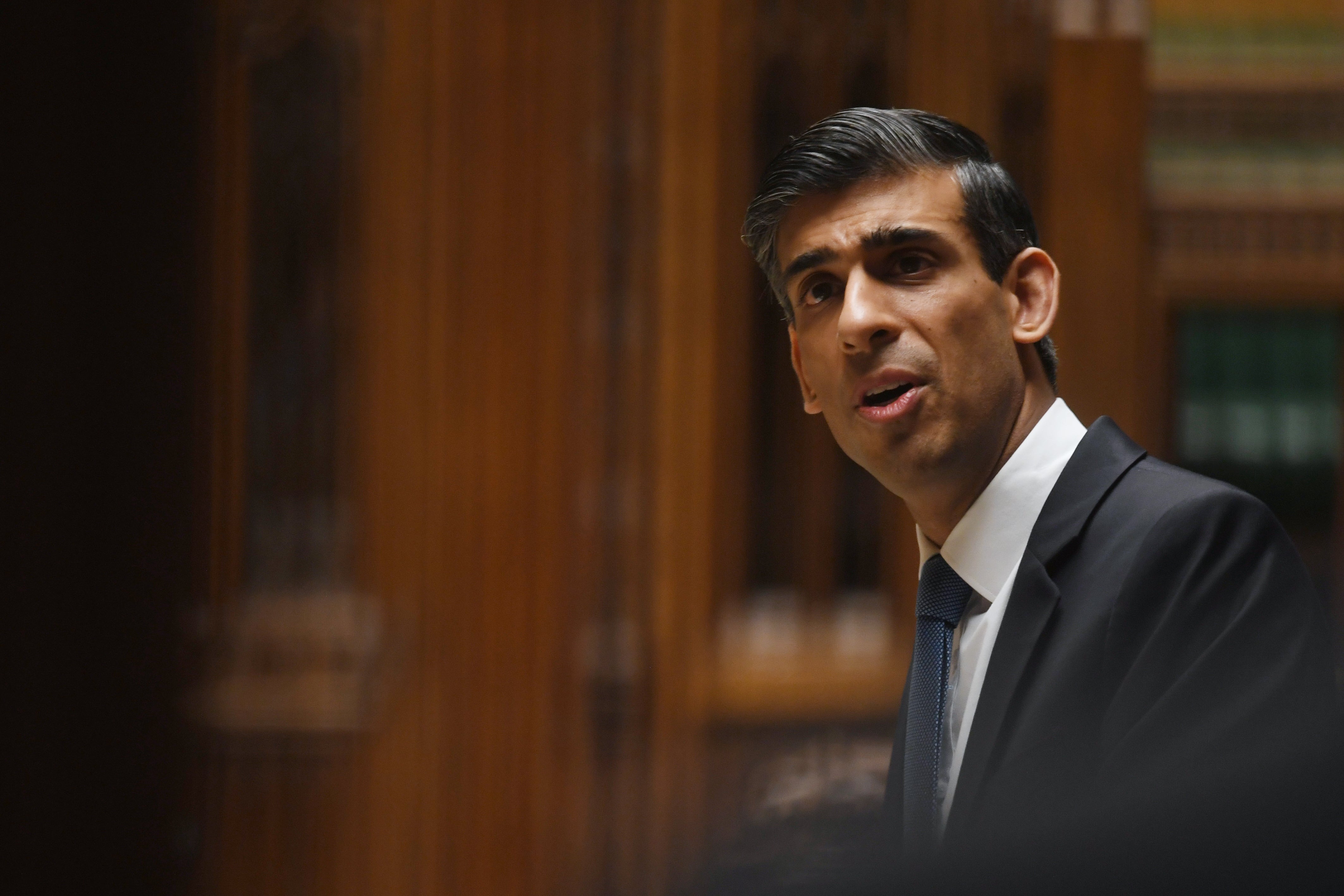Sunak called ‘socialist’ and ‘Klarna Chancellor’ over energy support plans
The Chancellor set out measures to ‘take the sting out’ of the £693 hike to typical energy bills when the price cap is raised in April.

Rishi Sunak has been accused of taking a “socialist approach” to easing the energy bills crisis by a senior Conservative MP, as others said the Chancellor’s measures were lacking.
The divisions in the Tory Party were on show when Mr Sunak set out plans to “take the sting out” of the £693 hike to typical energy bills when the price cap is raised in April.
Mr Sunak announced that all households will get £200 off their energy bills from October, which will be paid back in higher bills over the next five years.
Households in council tax bands A to D will also receive a £150 rebate from April, a £3.6 billion measure that will not be paid back on bills.
Peter Bone who has represented the market town of Wellingborough since 2005, suggested the Chancellor was deploying a left-wing response rather than one of a traditional Tory.
But Stevenage MP Stephen McPartland said the policy “lacks ambition” and represented a missed opportunity to “support families courageously”.
Tom Tugendhat the chair of the Commons Foreign Affairs Committee who is eying a run at the Tory leadership if Boris Johnson is ousted over partygate, made a plea for lower taxes.
Many Tory backbenchers have urged the Government to scrap or delay its 1.25 percentage point increase to National Insurance which will hit in April, just as energy bills soar.
Mr Tugendhat, the MP for Tonbridge and Malling, tweeted: “April showers won’t be cheap. The sudden surge in the cost of heating will hit families across the country just as the new NI tax kicks in.
“People need control of their lives by having control of their wallets – that’s why lower taxes matter for every home.”
In the Commons, Mr Bone asked if the Chancellor was taking a “Conservative approach or a socialist approach?”
“Conservatives believe in holding taxes down and putting more money in people’s pockets so they can decide how to spend it,” he said.
“Socialists believe in raising taxes and then choosing to give it back in the form of discounts and rebates to selected people the Government think need it.”
Mr Sunak replied: “I also believe that it is a Conservative approach to be responsible with this nation’s public finances.”
Tatton Tory MP Esther McVey, a former Cabinet minister, questioned whether “middle Britain” will be supported “as well as those on the very lowest of incomes”.
Labour MP Dame Meg Hillier labelled Mr Sunak that “Klarna Chancellor”, saying his measures are “buy now, get it now, pay later”.
Shadow chancellor Rachel Reeves added: “What do the Government offer? A buy now, pay later scheme that loads up costs for tomorrow.”
Some Tory MPs have been pressuring for a VAT cut on energy bills, but Mr Sunak argued it would “disproportionately benefit wealthier households” and become a “permanent Government subsidy on everyone’s bills”.
Mr Sunak sought to justify his new support package, saying the Government has to “step in” to help families manage the “incredibly tough” spike in costs driven by wholesale gas hikes.
Bookmark popover
Removed from bookmarks